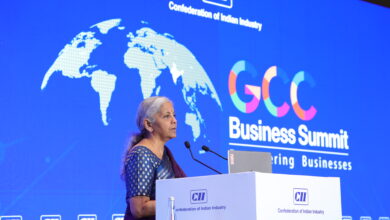
The recently concluded Free Trade Agreement (FTA) between the United Kingdom and India—described as the UK’s most significant bilateral agreement post-Brexit—may appear focused on tariffs and goods. But look closer, and you’ll discover what this can mean for the India-based Global Capability Centres (GCCs) powering everything from compliance and digital platforms to innovation and CX for UK enterprises.
As the report from His Majesty’s Government highlights, services liberalization, digital trade facilitation, and smoother professional mobility are key pillars of the FTA. For the 1,700+ GCCs in India—including the fast-growing cohort serving UK-based enterprises—these shifts present both strategic opportunity and operational transformation.
A Trade Deal, But Services-Centric at Heart
While the FTA reduces or eliminates tariffs on 90% of UK-India goods trade lines, the real long-term value may lie in its liberalization of the services economy. The UK’s services exports to India—already valued at over £10 billion—are now guaranteed more secure access across sectors like:
-
Financial services
-
Environmental and construction services
-
Business and professional services
-
Telecommunications and digital trade
Many of these sectors already leverage GCCs in India for mission-critical functions—compliance, analytics, product development, customer operations, and more. The FTA unlocks the potential for India-based GCCs to deliver a greater share of regulated, high-value services, enabling UK firms to optimize margins, talent, and time-to-market.
Digital Trade: The Unseen Enabler
The digital trade chapter of the FTA includes commitments on:
-
Paperless trade
-
Cross-border data flows (with future provisions)
-
Protection of source code
-
Legal recognition of e-contracts
These are not abstract commitments—they are operational game-changers. GCCs can now build and deploy digital platforms with fewer compliance bottlenecks, particularly for sectors like fintech, e-commerce, and media. With rising data localization in play, the FTA provides a framework for trusted flows and tech alignment between the two economies.
A Quiet Boost for Innovation and IP
The FTA goes further than any of India’s previous agreements on intellectual property, including:
-
Patent procedure improvements
-
IP enforcement in the digital environment
-
Fast-tracked protections for UK-origin IP in India
This unlocks confidence for UK firms to co-innovate from their India centers. For India-based GCCs involved in R&D, platform engineering, and design IP, the agreement ensures more clarity and speed in protecting proprietary innovations.
People Movement: Making the Cross-Border Model Work
Perhaps the most human-centered win for GCCs is the temporary mobility of professionals. UK professionals can enter India for business without cumbersome work visa protocols—and vice versa. For GCCs managing global projects, cross-border rotations and hybrid staffing models just became more frictionless.
Expect this to strengthen leadership integration, cultural alignment, and smoother transitions for UK firms establishing or scaling their GCCs in India.
SMEs and Procurement: A Nod to the Mid-Sized GCC Ecosystem
The FTA includes a chapter dedicated to small and medium enterprises (SMEs)—with commitments to provide accessible trade information and setup support. While seemingly UK-focused, this provision creates a doorway for emerging Indian tech and consulting SMEs (many of whom support UK GCCs) to engage in bilateral trade partnerships.
Moreover, the government procurement chapter opens up select public sector contracts in India to UK firms—and vice versa. GCCs working in public-sector tech, clean energy, or infra consulting may find new growth paths here.
From Service Center to Strategic Partner
For years, India’s GCCs have delivered operational excellence to UK multinationals. With the FTA now creating a policy framework for deeper economic integration, the GCC narrative is shifting—from support center to strategic enabler of trade, innovation, and digital transformation.
At GCC Pulse, we believe the time is right for GCC leaders to reassess how they align with their UK counterparts—beyond execution, toward enterprise value creation.
Suggested Reading






